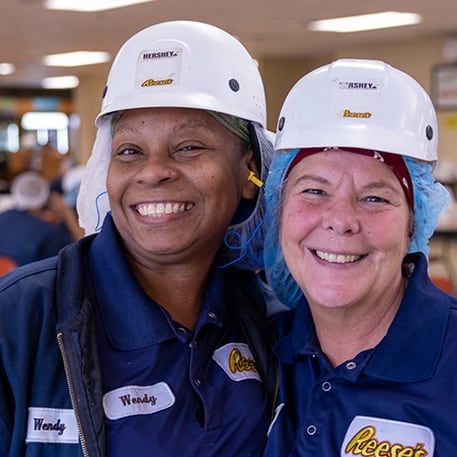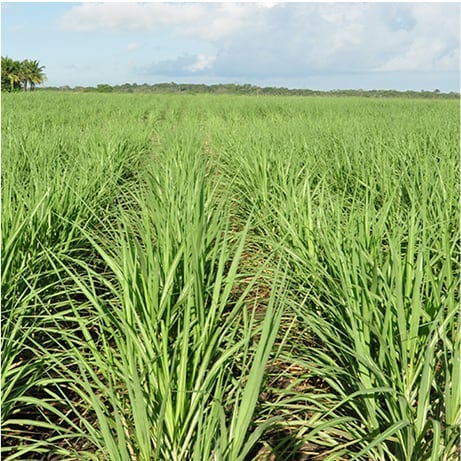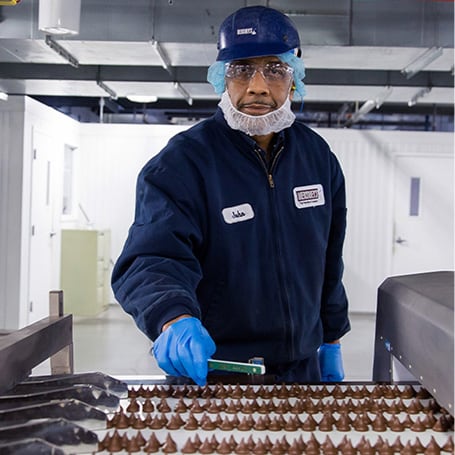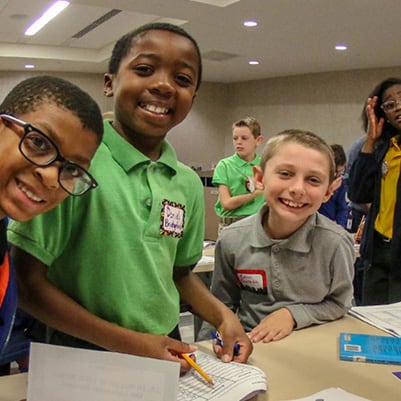Sugar
Sugar is an essential ingredient in many of our delicious snacks. Sugar production provides a livelihood to growers and local communities. At Hershey, we are committed to a supply chain of responsibly sourced sugar.
Our Approach to Responsibly Sourced Sugar
To achieve a responsible sugar supply chain, we focus on three strategic pillars:
- Traceability: Building traceability to the mill and farm level to understand our footprint and opportunities for impact
- Supplier Engagement, Monitoring and Verification: Communicating our expectations to suppliers and strengthening their sustainability management while using credible certification and verification schemes to monitor performance and drive continuous improvement across sustainability impacts in our sugar supply chain
- Origin Transformation: Investing in on-the-ground programs to support protection of human rights, GHG emissions reduction in line with our science-based targets, water stewardship and the resilience and livelihoods of sugar-growing communities
Traceability
Our sugar cane supply is mainly sourced from the U.S., Mexico and Brazil, although we source from other countries as well such as Belize and India. Our sugar beet supply comes entirely from the United States.
We continue to work with our suppliers to trace our sugar to the mill level to understand if it is linked to areas or mills with concerns such as deforestation, water pollution or the exploitation of workers. About 70 percent of the sugar we purchase is traceable to the mill.
Engagement, Monitoring and Verification
We expect all our sugar suppliers and business partners to comply with our Supplier Code of Conduct (SCOC) and all other relevant policies on environment and human rights. We also expect our sugar suppliers to communicate the SCOC and relevant policies throughout their supply chains. To verify that our sugar suppliers uphold our standards within their own operations we have enrolled all sugar suppliers in our Responsible Sourcing Supplier Program. As part of this program, all processing sites that provide sugar to Hershey are required to have an up-to-date Sedex Self-Assessment Questionnaire and a Sedex Members Ethical Trade Audit (SMETA) 4-pillar audit (or equivalent).
At the mill and farm level, we use credible third-party standards and verification mechanisms, including the Bonsucro and Fair Trade certifications for our sugar cane and the Sustainability Agriculture Initiative Platform (SAI Platform) Farm Sustainability Assessment for both beet and cane sugar. We source 100 percent Bonsucro-certified Mass Balance sugar for our plants in Canada and Brazil to meet the market demand for sustainable ingredients and to support certified suppliers that demonstrate commitment to ethical production.
When feasible, we also periodically source Bonsucro-certified Mass Balance sugar for our plants in the U.S. and Mexico. When certified Mass Balance sugar is not available at any of the international sources we buy from, we purchase Bonsucro credits to match the volumes of the conventional sugar we buy from these sources.
In 2022, we sourced 72 percent of our sugar volume from farms certified or verified to a recognized sustainability standard or covered by Bonsucro credits – putting us on track to procure 100 percent of our sugar from certified or verified sources by 2025.
We also completed a baseline assessment of our suppliers' sustainability and responsible sourcing practices and management systems. This assessment allowed Hershey to hear directly from suppliers on their own programming efforts and responsible sourcing journeys. The results are helping us identify potential risks and opportunities to create action plans to drive improvement.
Transformation
Hershey is a member of the Sustainability Agriculture Initiative (SAI) Platform. Through the SAI Platform, Hershey accesses tools and resources, and collaborates with other stakeholders across the agricultural value chain to advance sustainable agriculture practices globally. We use the SAI Platform’s Farm Sustainability Assessment (FSA) as another tool to assess, communicate and improve on-farm sustainability in our sugar supply chain.
Hershey partners with our supplier American Sugar Refining (ASR), to implement “Learn to Grow” field school programs in Belize and Mexico that deploy a farmer field school model to help farmers in our supply chain implement more sustainable growing practices to holistically address environmental and social issues.
Our program in Mexico reaches approximately 1,150 farmers and 1,500 cane cutters. With our support, participants have improved cane quality by 49 percent and earned higher incomes.
In Belize, our program helps farmers adapt to climate change by using weather forecasting and pest prediction technology. Farmers also learn best management practices such as environmentally-friendly biological pest control techniques. More than 1,900 farmers in Belize have been trained in and adopted the new technology platform. These farmers have applied biological pest controls to over 1,000 acres, avoiding nearly 3,000 kg of traditional pest control chemicals. Early intervention has helped prevent further infestation and application of additional chemicals. Farmers have realized significant savings by avoiding pesticide costs and production losses.



